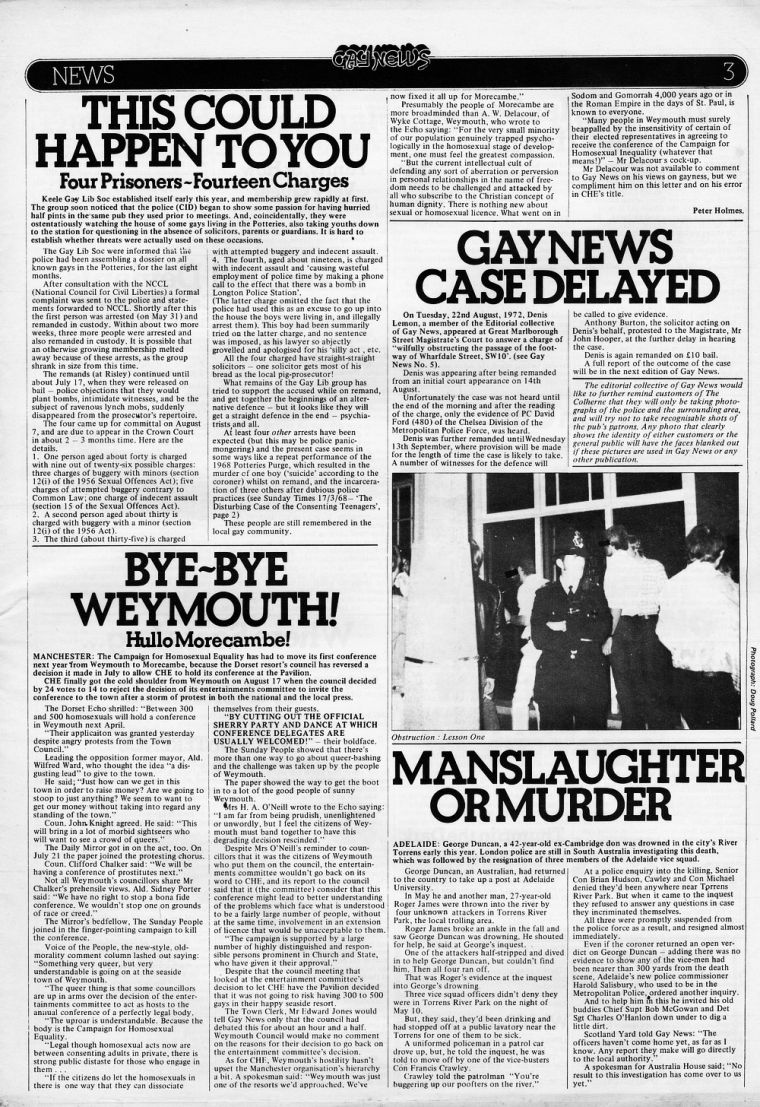Vicar defiant after a lifetime campaigning for gay-rights
A retired vicar involved in a high-profile gay rights case has spoken with defiance about his lifelong campaign for same-sex marriage in the church.
Neil Richardson, 71, was called to advise Gay News editor Denis Lemon in the last trial for blasphemous libel in this country at the Old Bailey in London.

Lemon was the defendant after he published a poem in June 1976 called The Love that Dares to Speak its Name by James Kirkup.
The piece, which describes Jesus having sex with a Roman centurion, caused offence to social campaigner Mary Whitehouse who filed a private case against the magazine and against Lemon.
Richardson, then 31, was part of the Lesbian and Gay Christian Movement (LGCM) which has now merged with another pro-gay Christian group Changing Attitude to become One Body One Faith.
The trial made headlines around the country as the first blasphemy case in court since 1921 and LGCM sent out an appeal asking for help with the defence.
'I was there as an advisor for the theology that might come up in the case and a visible supportive clergyman so they could see some Christians were on their side,' he told Braintree and Witham Times.
'The judge kept saying things that gave the impression he was pushing opinions on the jury. I believe he led them all the way.
'Everyone thought the jury would take ten minutes to make a decision but they stayed out a long time and in the end it was a majority verdict. Ten against two.'
In the end Lemon lost and was fined £500 and given a nine month suspended prison sentence.
Ten years later Richardson hit the headlines again when he blessed a lesbian couple in his church.
'I heard nothing about it until November that year when my boss asked me in for a meeting,' he told the paper.
'She had a copy of the Sun and showed me page four. I was amazed they had waited so long and I had no idea who had released that information to them.
'I got some abuse for doing it and I had a letter sent to my addressed to the "rectum of Greenford".
'To me I was just doing what I thought was right. These people just wanted a blessing.
'Who can object to two people having a blessing from the church to give them a sense of finality about their relationship?'
Richardson is defiant about his role and says he is proud of what he achieved.
'Things have changed so much since those days. You couldn't come out and say you were in favour of equal marriage 40 years ago, but lots of Christians now think that way.
'The critical thing that has changed is that people now believe it is their own business, not anyone else's, whom they love.'











